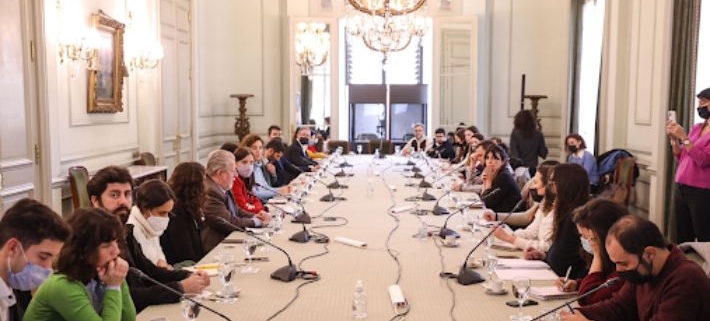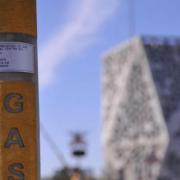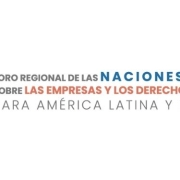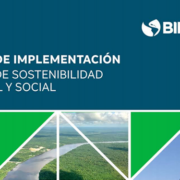Argentina advances towards a National Plan on Business and Human Rights
The Ministry of Foreign Affairs, International Trade and Worship is coordinating the process of preparing a National Action Plan on Business and Human Rights. What are the progress so far and the next steps?
“Below, we offer a google translate version of the original article in Spanish. This translation may not be accurate but serves as a general presentation of the article. For more accurate information, please switch to the Spanish version of the website. In addition, feel free to directly contact in English the person mentioned at the bottom of this article with regards to this topic”.
What are the National Action Plans on Business and Human Rights?
The National Action Plans on Business and Human Rights (PNAEDH) are transversal public policies whose objective is to address the obligation of the State to protect, respect and enforce human rights with respect to the negative consequences of business activities. Through these plans, governments seek to commit to the implementation of the United Nations Guiding Principles on Business and Human Rights (UNGP), as well as other business and human rights and Responsible Business Conduct (CER) standards.
The PNAEDH contribute to achieving greater coherence and coordination between the different regulatory frameworks and public policies with an impact on the issue of business and human rights, and contribute to the detection of obstacles and gaps. This makes it possible to establish priorities and commitments for action. Given its transversal and collaborative nature, its preparation requires the representative, broad and plural participation of multiple actors: State agencies, civil society organizations, academia, companies, business and worker organizations, indigenous peoples and potentially affected communities. , among others.
First steps
Argentina, based on recommendations received in the framework of the Universal Periodic Review of the Human Rights Council, assumed the commitment to prepare an Action Plan on Business and Human Rights, a fact that took place in view of its re-election to the Human Rights Council Human Rights on October 14, 2021. For the coordination and leadership of the process of elaboration of the Plan, the Human Rights Directorate of the Ministry of Foreign Affairs, International Trade and Worship of the Nation (MRECIC) was appointed.
Regarding the actions carried out, one of the first steps consisted in the preparation of a Roadmap, which was validated internally by the MRECIC. Next, according to official sources, a mapping of interest groups and agencies with an impact on the matter was carried out and the initiatives and policies, in the process of execution in the country, with some proximity to the matter of companies and human rights and , Responsible Business Conduct to identify possible alliances within the Government.
Priority areas of the Action Plan and preparation of the National Baseline
The Human Rights Directorate commissioned the National Ombudsman’s Office to prepare the National Baseline (LNB) that will serve as a central input for the design of the First Action Plan on Businesses and Human Rights in Argentina. The LNB is a study that allows evaluating the level of implementation of the United Nations Guiding Principles on Business and Human Rights within a State. It is a preliminary diagnosis for the preparation of the Plan and generates the information required for subsequent planning by the person who formulates the public policy.
The National Action Plan on Business and Human Rights will include 11 thematic axes:
- Labor standards (child labor, forced labor, human trafficking, health and safety conditions, freedom of association);
- Gender equality (salary parity, access to hierarchical positions, harassment and violence in the world of work, care tasks, reconciliation of work and family life, etc.);
- Diversity and non-discrimination;
- Environment (environmental protection, participation and access to environmental public information, environmental impact assessment; climate change; energy transition);
- Companies and policies of Memory, Truth and Justice;
- Rights of consumers and users;
- Corporate governance (due diligence and remediation in companies – political commitments of companies on issues of human rights and good governance, business policies and international standards of business and human rights, sustainability reporting, risk management);
- Technology, personal data and privacy;
- Access to information and public participation in general;
- Promotion of the human rights of groups in situations of vulnerability and/or historically discriminated against (persons with disabilities, migrants, Afro-descendants, boys, girls and adolescents, LGBTIQ+ people, older people, people deprived of their liberty, indigenous peoples, defenders or others) and,
- Public Governance (ethics, integrity, transparency, access to information, anti-corruption, public procurement, management of public companies).
A participatory process
The process of elaboration of the National Base Line must be participatory and offer the possibility that the different parties related to the subject, as well as those people who have an interest, can collaborate. Within this framework, at the beginning of November 2022, in response to an invitation received, we sent inputs and recommendations on five of the aforementioned thematic axes: Environment, Rights of consumers and users, Corporate governance: due diligence and remediation in companies, Access to information and public participation in general, and Public Governance.
We also participated virtually in the first meeting with civil society and academia, organized by the National Ombudsman’s Office, for the preparation of the National Base Line for the National Action Plan on Business and Human Rights. Likewise, in the month of September, we were at the multi-stakeholder discussion table, organized by the CERALC project in Buenos Aires, in which the challenges, opportunities and prospects for advancing due diligence for responsible business conduct in Argentina were discussed. . It is worth mentioning that, from the beginning of the development of the PNAEDH, the Directorate has the support and technical advice of the Office of the United Nations High Commissioner for Human Rights (OHCHR) within the framework of the CERALC Project.
Next steps
According to the work calendar estimated by the national government, the process of elaboration of the Plan is divided into 4 main stages, each one of them with specific activities. The first is the preparation of the National Baseline. Then, as a second instance, capacity building for key actors. As a third stage, the drafting and approval of the PNAEDH is estimated, from January to March 2023. Finally, the publication of the PNAEDH is expected, approximately in June 2023.
Activities and estimated dates
- Participatory spaces coordinated by the Ombudsman’s Office – September to October 2022
- Preparation of the National Baseline by the National Ombudsman’s Office – July to November 2022
- Trainings – October to November 2022
- Drafting of PAN – January to March 2023
- Consultations based on the draft PAN – March to May 2023
- Presentation and publication of PAN – June 2023
Source: https://www.cancilleria.gob.ar/userfiles/recursos/plan-de-trabajo.pdf
The implementation of the business and human rights agenda represents an opportunity to which all stakeholders are called to contribute. It is time for an urgent, deep and real discussion that increases the chances that this global debate will be taken seriously, and evaluated from the perspective of public policies so that a very sober and voluntary National Action Plan is not their single destination.
More information
- National Business and Human Rights Plan | Ministry of Foreign Affairs, International Trade and Worship
- Workplan
- United Nations Guiding Principles on Business and Human Rights (UNGPs)
- Responsible Business Conduct Project in Latin America and the Caribbean – Office of the united nations high commissioner for human rights
- Why Argentina still does not have a National Action Plan on Business and Human Rights? – Fundeps
- When the discourse is diluted: human rights and transnational companies – El Entramado
- Argentina: Government presents National Human Rights Plan and announces Action Plan on business and human rights – Business & Human Rights Resource Center
Authors
Camila Victoria Bocco
Camila Busso
Contact
Gonzalo Roza, gon.roza@fundeps.org
*Photo taken from the official website of the Argentine Foreign Ministry










